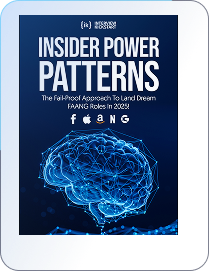Is your Intel interview just around the corner? If yes, this article on Intel interview questions will help you get a fair idea of what to expect at the interview. We’ll look at Intel interview questions on coding, systems design, and behavioral attributes.
Intel is a multinational technology company primarily dealing with semiconductor design and manufacturing. It is the biggest semiconductor manufacturer globally, and also manufactures Graphic Processing Units, Microcontrollers, Modems, Network Interface Controllers, and more.
Intel is among the top 50 highest revenue-generating companies and consistently ranks high in the best places to work. Intel offers a culturally diverse work environment that strongly encourages initiative, ownership, and leadership. The company also pays lucrative salaries to its employees, with the average salary of Intel software engineers being $119,677.
If you’re a software engineer, coding engineer, software developer, engineering manager, or tech lead preparing for tech interviews, check out our technical interview checklist, interview questions page, and salary negotiation e-book to get interview-ready!
Having trained over 17,000 software engineers, we know what it takes to crack the toughest tech interviews. Since 2014, Interview Kickstart alums have been landing lucrative offers from FAANG and Tier-1 tech companies, with an average salary hike of 49%. The highest-ever offer received by an IK alum is a whopping $933,000!
At IK, you get the unique opportunity to learn from expert instructors who are hiring managers and tech leads at Google, Facebook, Apple, and other top Silicon Valley tech companies. Our reviews will tell you how we’ve shaped the careers of thousands of professionals aspiring to take their careers to new heights.
Want to nail your next tech interview? Sign up for our FREE Webinar.
In this article, we’ll look at some Intel interview questions covering Intel coding interview questions, Intel systems design interview questions, and behavioral interview questions.
Here’s a quick look at what we’ll discuss:

The interview process at Intel typically tests your problem-solving and analytical programming skills. The main aspects of the interview include:

Let’s look at the interview process in detail.
The Recruiter Screen is the first round where a recruiter from Intel’s human resources department will give you details about the open position and find out your interest. Intel interview questions in this round are mostly around your experience, previous organizations you’ve worked with, your skill level, and general expectations from the role.
The recruiter will also obtain details about your current and expected compensations. If your skill set and level of experience are in tune with the demands of the role, you’ll be invited to the Technical Phone Screen interview.
This round essentially evaluates your programming and problem-solving skills. Your abilities as a coder are closely assessed through a coding problem. The problem will involve applying concepts in core data structures. You’ll be asked to code up an algorithm and arrive at the most optimal solution to the problem.
You’re usually asked to solve one or two coding problems (easy-medium difficulty) in the Technical Phone Screen round. The hiring manager might also tweak the problem statement to understand your thought process and ability to account for multiple variables while solving the problem.
If your performance on the Technical Phone Screen is satisfactory, you’ll be called for the Intel On-site interview.
The on-site fundamentally tests your coding and systems design skills. There’s also a behavioral and soft skill round where you’re asked a bunch of questions on your strengths, professional experiences in the past, workplace conduct, and ethics.
The on-site Intel interview will usually have these rounds:

This section on Intel interview questions will cover sample questions that you can expect at the Intel interview. It will cover Intel coding interview questions, Intel systems design questions, and behavioral interview questions.
Intel interview questions on coding are predominantly around core data structures and graph algorithms. Below are the important coding concepts around which Intel interview questions are asked:
Get access to several more coding problems along with optimal solutions at our Problems Page.
Our Learn Page will help you brush up on important coding and design concepts for the interview.
Your knowledge of concepts in scalable systems design is tested in this round. Below are the important topics for the Systems design interview at Intel:
Behavioral interview questions fundamentally test your ability to react optimally to challenging workplace situations and your general attitude towards professional and personal situations. Below are some sample behavioral interview questions asked at the Intel interview:
Let’s look at some noteworthy tips to ace the technical interview at Intel:
Systems design is an integral component of the interview process. There can be 2 systems design rounds On-site, with questions mostly around scalable systems and applications, network protocols, databases, caching and Sharding, and systems design case studies. Systems design interviews at Square are more important for senior developer and managerial (Engineering Management) positions.
Behavioral interview questions asked at Intel’s technical interview are mostly around past experiences with challenging projects, relationships with coworkers and superiors, work-life balance, productivity, and general workplace-related situations. You can also be asked questions about your strengths and weaknesses and how you’d manage stress and pressure in the face of demanding work projects.
You can expect 1-2 Intel interview questions on coding during the Technical Phone Screen round and 1-2 questions during the On-site coding round.
Interview Kickstart’s mock interview course is just the perfect resource to help you prepare for mock interviews to tackle technical interviews at the biggest companies.
Questions on distributed systems design are asked during the On-site design round. You can expect one problem-type question and a few concept and theory-based Intel interview questions on systems design.
If you want to kickstart your technical interview prep, register for Interview Kickstart’s free webinar to get guidance and direction on the best strategies to nail technical interviews at the biggest tech companies.
IK is the gold standard in tech interview prep. Our programs include a comprehensive curriculum, unmatched teaching methods, FAANG+ instructors, and career coaching to help you take your prep to the next level. We’ve trained thousands of engineers and helped them crack tough technical interviews with average pay jumps of 49%.
These reviews from our alums will give you the full story.
If you want to land your dream job, sign-up now!
Attend our free webinar to amp up your career and get the salary you deserve.

693+ FAANG insiders created a system so you don’t have to guess anymore!

100% Free — No credit card needed.

Time Zone:






Get your enrollment process started by registering for a Pre-enrollment Webinar with one of our Founders.

The 11 Neural “Power Patterns” For Solving Any FAANG Interview Problem 12.5X Faster Than 99.8% OF Applicants
The 2 “Magic Questions” That Reveal Whether You’re Good Enough To Receive A Lucrative Big Tech Offer
The “Instant Income Multiplier” That 2-3X’s Your Current Tech Salary

The 11 Neural “Power Patterns” For Solving Any FAANG Interview Problem 12.5X Faster Than 99.8% OF Applicants
The 2 “Magic Questions” That Reveal Whether You’re Good Enough To Receive A Lucrative Big Tech Offer
The “Instant Income Multiplier” That 2-3X’s Your Current Tech Salary
Just drop your name and email so we can send your Power Patterns PDF straight to your inbox. No Spam!
By sharing your contact details, you agree to our privacy policy.
Time Zone: Asia/Dhaka

We’ve sent the Power Patterns PDF to your inbox — it should arrive in the next 30 seconds.
📩 Can’t find it? Check your promotions or spam folder — and mark us as safe so you don’t miss future insights.
We’re hosting a private session where FAANG insiders walk through how they actually use these Power Patterns to crack interviews — and what sets top performers apart.
🎯 If you liked the PDF, you’ll love what we’re sharing next.
Time Zone:

